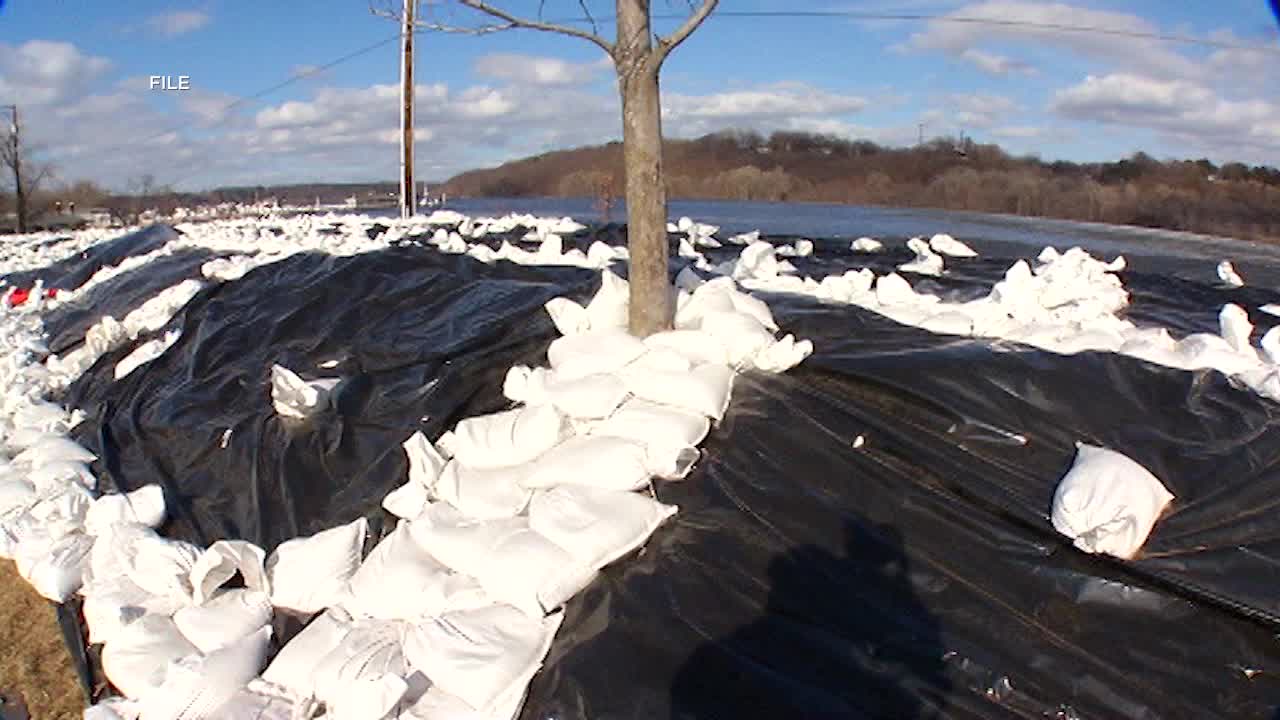As Stillwater braces for flood season, city in need of volunteers to stack sandbags
As the snow melts and flooding concerns ramp up, Stillwater is already working to protect businesses and residents along the St. Croix River.
Current projections show there is a 75% chance that the St. Croix will reach major flood stage. Stillwater city leaders and residents say the clock starts now to get sandbags in place ahead of whatever the river may do.
“It’s a lot of work to fill them and bring them back all down there and start loading them,” Stillwater resident Betty Nelson said.
The city is looking for volunteers, and anyone 14 or older can sign up for sandbagging shifts. They run from 8 a.m. to 5 p.m. Monday through Thursday next week and from 8 a.m. to 2 p.m. on Friday.
“They need all the help they can get, and people have to come together and pick up,” Nelson said. “The younger group, I think, needs to step up because it will impact them.”

FILE - Sandbags are stacked in Stillwater along the bank of the St. Croix River. (KSTP/file)
RELATED: Minnesota marinas prepare for spring flooding
Starting Wednesday, seven of the city’s trails and seven parking lots near the water are closed. On Monday, portions of nearby streets will shut down to traffic and parking.
“It does limit our parking availability down here, but it certainly brings more people down to check it out, and we tend to get a little bit busier, especially on the weekends,” said Timothy Johnson, kitchen manager of Leo’s Grill and Malt Shop in downtown Stillwater.
Despite anticipation of more customers, businesses are thankful for volunteers and the work they’ll be doing in the coming days.
“It’s pretty neat to see them do that when you know what it looks like beforehand, when they put it in, and they do it very quickly, and a lot of volunteers help out with that which is a very cool thing,” Johnson said.
And while there’s plenty of snow on the ground that has yet to melt, the forecast over the next week is expected to work to the benefit of riverfront communities.
Warm days are still expected, but freezing temperatures at night should help slow the rate at which water flows into the rivers, ultimately lowering the height of the crest.